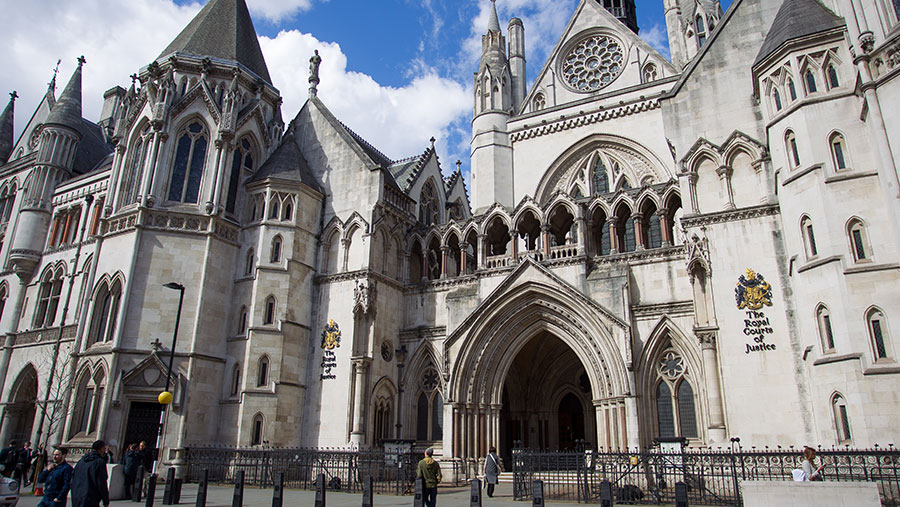Payouts likely after business interruption insurance judgment
 © Rex/Shutterstock
© Rex/Shutterstock Policyholders denied Covid-19 business interruption (BI) insurance claims have received a High Court judgment that means they may receive a payout after all.
The court found in favour of policyholders on the majority of the key issues in a test case taken by the Financial Conduct Authority (FCA) in July.
Eight insurers were involved in the case, which examined 21 different lead policy wordings to establish whether insurers should pay out on claims.
The FCA estimates up to 370,000 UK businesses could be affected by insurers’ failure to pay out on those claims.
See also: Test case gives hope for business interruption insurance payouts
Law firm Mishcon de Reya acts for two main policyholder groups, the Hiscox Action Group and the Hospitality Insurance Group Action, which were granted permission to intervene in the test case.
“The case was overall a resounding victory for the policyholders,” said Mishcon partner Richard Leedham.
Legally binding result
The result is legally binding on the eight insurer defendants to the test case regarding the policies considered by the court.
“It will also provide persuasive guidance for the interpretation of similar policy wordings and so directly affects the resolution of many more claims underwritten by many more insurers that were not involved in the test case, and beyond those specific wordings considered in the test case,” said Mr Leedham.
Insurers have asked for more time to put in an application for permission to appeal.
“We brought the test case in order to resolve the lack of clarity and certainty that existed for many policyholders making BI claims and the wider market,” said Christopher Woolard, interim chief executive of the FCA.
See also: Business interruption insurance judgment due soon
Insurers must progress claims
Insurers should reflect on the clarity provided by the result and, irrespective of any possible appeals, consider the steps they can take now to progress claims of the type that the judgment says should be paid, said Mr Woolard.
“They should also communicate directly and quickly with policyholders who have made claims affected by the judgment to explain next steps.”
The judgment removed a large number of roadblocks to successful claims, as well as clarifying those that may not be successful, said Mr Woolard.
He called for any appeal to be conducted in as rapid a manner as possible, in line with an agreement made between the FCA and insurers at the start of the process.
Although the judgment will be welcomed by many policyholders, the FCA points out that it did not say that the eight defendant insurers are liable across all 21 different types of policy wording in the sample considered by the court.
Each policy needs to be considered against the detailed judgment to work out what it means for that policy, said the FCA. Policyholders with affected claims can expect to hear from their insurer in the next seven days.
Policy wording background
Many policyholders whose businesses were affected by the Covid-19 pandemic suffered significant losses, resulting in large numbers of claims under BI policies.
Most small and medium business policies focus on property damage and only have basic cover for BI as a consequence of property damage.
However, some also cover for BI from other causes, in particular infectious or notifiable diseases (“disease clauses”) and non-damage denial of access and public authority closures or restrictions (“denial of access clauses”).
In some cases, insurers have accepted liability under these policies. In others, they have disputed liability while policyholders considered that it existed, leading to widespread concern about the lack of clarity and certainty.
In order to establish liability under the representative sample of policy wordings, the FCA argued for policyholders that the “disease” and/or “denial of access” clauses in the representative sample of policy wordings provide cover in the circumstances of the Covid-19 pandemic, and that the trigger for cover caused policyholders’ losses.
The judgment says that most, but not all, of the disease clauses in the sample provide cover.
It also says that certain denial of access clauses in the sample provide cover, but this depends on the detailed wording of the clause and how the business was affected by the government response to the pandemic, including, for example, whether the business was subject to a mandatory closure order and whether the business was ordered to close completely.
The test case has also clarified that the Covid-19 pandemic and the government and public response were a single cause of the covered loss, which is a key requirement for claims to be paid, even if the policy provides cover.
Next steps
The FCA and defendant insurers have agreed to seek to have any appeal heard on an expedited basis. This includes the possibility of any appeal being a “leapfrog” appeal to the Supreme Court rather than needing to be heard by the Court of Appeal first, said the FCA.
If you are affected by or interested in this issue, please contact Farmers Weekly’s business desk.
